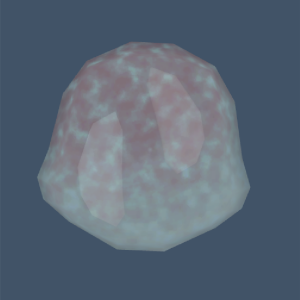Chemoplast: Difference between revisions
Jump to navigation
Jump to search
m Rephrase processes section |
m Add periods |
||
| Line 30: | Line 30: | ||
== Modifications == | == Modifications == | ||
No modifications | No modifications. | ||
== Effects == | == Effects == | ||
No effects | No effects. | ||
== Upgrades == | == Upgrades == | ||
No upgrades | No upgrades. | ||
== Strategy == | == Strategy == | ||
Revision as of 19:45, 21 February 2024
A eukaryotic organelle used to perform Chemosynthesis, the process of converting Hydrogen Sulfide ![]() into Glucose
into Glucose ![]() using environmental CO2
using environmental CO2 ![]() . It performs this process more efficiently than its prokaryotic counterpart: Chemosynthesizing Proteins.
. It performs this process more efficiently than its prokaryotic counterpart: Chemosynthesizing Proteins.
Requirements
A cell must have a Nucleus to evolve Chemoplasts.
Processes
Chemosynthesis: Hydrogen Sulfide ![]() + CO2
+ CO2 ![]() → Glucose
→ Glucose ![]()
A method of glucose synthesis. Requires Hydrogen Sulfide ![]() and the rate of the reaction scales with environmental CO2
and the rate of the reaction scales with environmental CO2 ![]() . It is superior to the process performed in Chemosynthesizing Proteins.
. It is superior to the process performed in Chemosynthesizing Proteins.
Modifications
No modifications.
Effects
No effects.
Upgrades
No upgrades.
Strategy
TBA
Scientific Background
TBA

